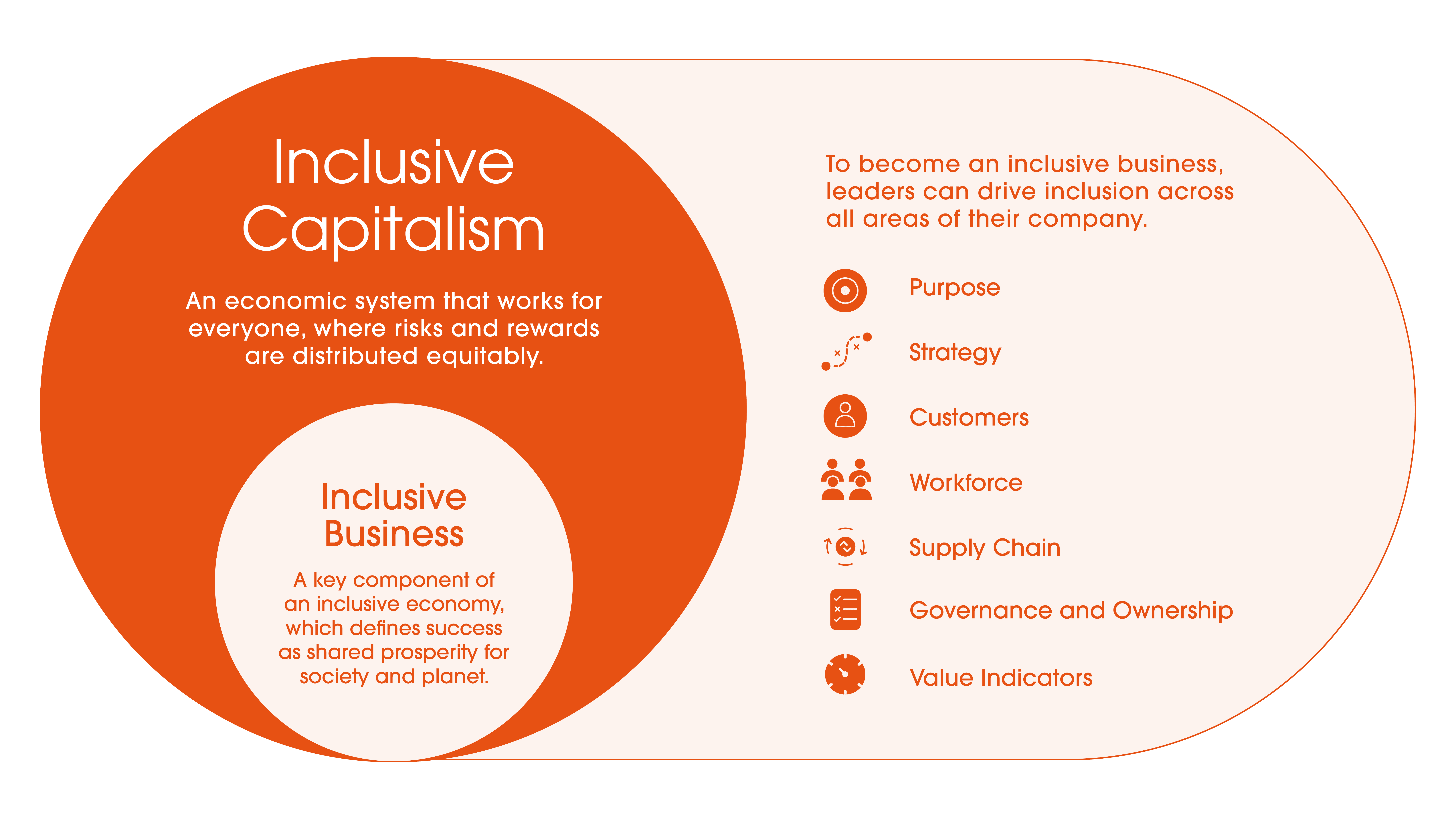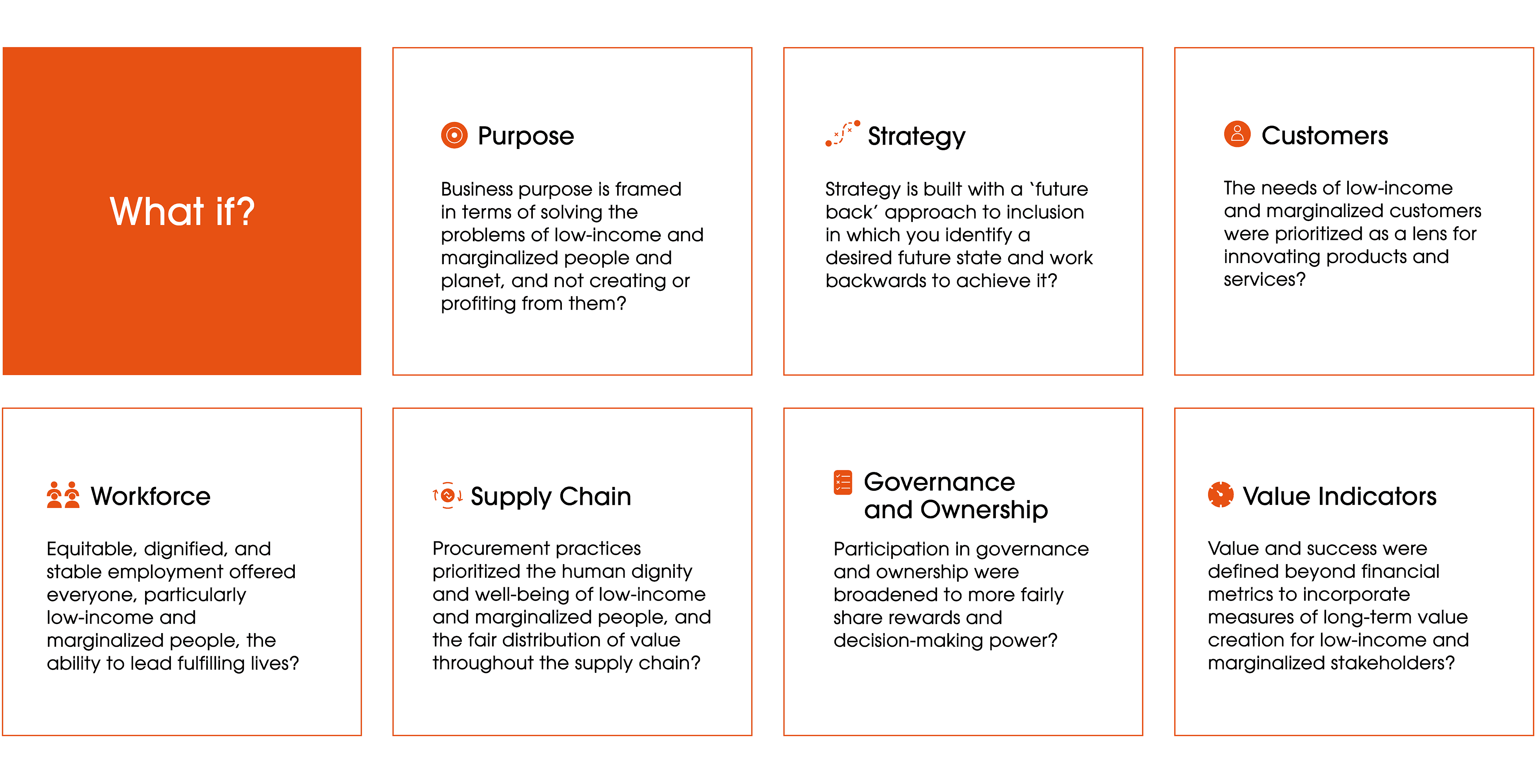Inclusive Business Playbook Offers Framework for New Economy

- Blog
If businesses are to be truly inclusive, they must incorporate low-income and marginalized people across their operations — a new Inclusive Business Playbook from Acumen and EY provides a toolkit to help companies navigate this transition.
Inclusive business is more than a buzzword, it is the foundation of a more just and equitable economy that reduces inequality, drives shared prosperity, and protects the environment. Businesses of all sizes and sectors are increasingly committed to advancing inclusion. Yet new tools are needed to help them begin this journey. A new Inclusive Business Playbook from Acumen and EY, which includes an actionable framework and case studies, fills this gap and, by drawing on the experience of inclusive social enterprises, provides business leaders with a valuable resource to identify opportunities to become a more inclusive organization.

For 20 years, Acumen has supported innovative social entrepreneurs and worked with them to build business models that tackle systemic problems of poverty. We believe that inclusive businesses correct market failures that undervalue human contributions and can drive economic growth for people living in poverty by including them as members of their workforce, supply chain, and ownership structures, or as customers and treating them with dignity rather than as a means to an end. EY, on the other hand, is a leader in helping existing businesses transition to more inclusive practices. Our collective, global experience bridges the divide between early-stage social enterprises and multinational corporations and provides unparalleled insight on how businesses can deliver both social impact and financial returns.
Together we share a vision for inclusion that goes beyond building a diverse workforce or selling products to low-income customers to structuring entire business models to create more meaningful participation and economic opportunity for low-income and marginalized people across all elements of operations — purpose, strategy, customers, workforce, supply chain, and ownership and governance structures.
A Framework for Inclusion
Building an inclusive business requires a new definition of success and the fair distribution of risk and reward across stakeholders. In practice, this means rewarding the smallholder farmer and not just the investor. For many businesses this will require a reimagining of operations to include people living in poverty and remove the systemic inequities that lead to exploitation, environmental degradation, and mass inequality. The Playbook offers guiding questions to walk business leaders through this complex transition.

The companies included in the case studies have successfully built inclusive businesses that demonstrate new models for valuing the contributions of low-income and marginalized people, provide opportunity for economic growth, and address systemic issues that keep people poor. They have demonstrated how businesses of all sectors and sizes can prioritize inclusion, and the hard choices leaders make to balance social impact and financial returns.
The select case studies below offer three distinct models to increase the participation of low-income and marginalized stakeholders:
Workforce: The Ansaar Management Company (AMC), a business providing affordable housing and community services to low-income families in Pakistan, has developed an employee benefit trust in which its employees — primarily low-income women and people with disabilities — own 41% of the company. This profit-sharing structure enables employees to share in the success of the business.
Governance and Ownership: Saral Designs’ business in a box model “gives local entrepreneurs the freedom to develop their own brands,” says Suhani Mohan, co-founder and CEO. This model provides ownership and economic growth opportunities for low-income and marginalized people and cuts distribution costs, significantly reducing the price of sanitary napkins for its customers.
Value Indicators: At Coliba, a recycling company in Ghana, an investor who sought to prioritize profit at the expense of the company’s low-income and marginalized workforce threatened the organization’s social purpose. As a result, its founder bought out the investor to ensure that the company measures success not only by profit, but by the impact it has on its workforce and broader community.
As these social enterprises and others in the Playbook demonstrate, becoming an inclusive business is not a series of checkboxes, it is a fundamental reimagining of operations to incorporate low-income and marginalized people. While necessary, this transformation will not be easy; as the case studies show, there can be inherent tensions between prioritizing inclusion and impact and delivering financial returns.
If businesses can succeed in increasing inclusion, however, we can establish a new economy that drives shared prosperity rather than inequality. At Acumen, this effort is central to our mission to tackle poverty. In West Africa specifically, our investment strategy — developed with support from Bank of America — is focused on channeling capital to businesses that are shifting the status quo to create more meaningful economic opportunity for low-income people. In the coming months and years, we will continue to draw on our experience and share insights to empower businesses of all sizes and sectors to adopt more inclusive models. Regardless of where your business is on its road to inclusion, we hope you’ll join us on a journey to create a more just and equitable economy, because we all have a role to play.